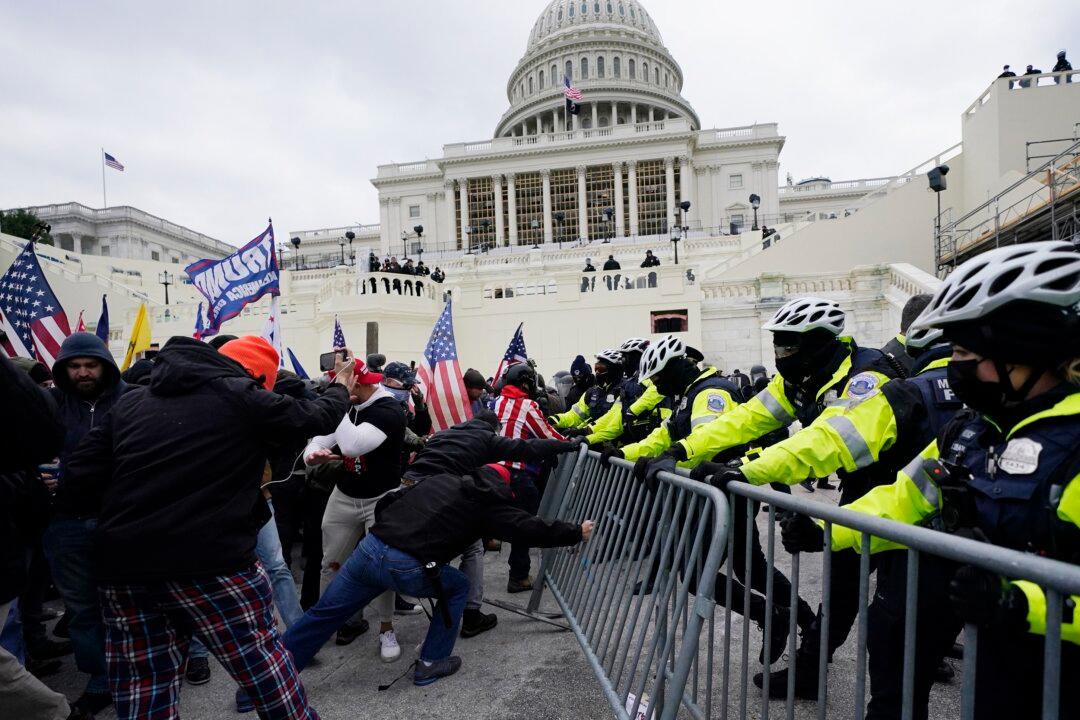More than 535 defendants across nearly 50 states have been charged in the six months since the Jan. 6 breach of the Capitol Building, the Department of Justice (DOJ) stated on July 6.
That includes 495 defendants who have been charged with entering or remaining in a restricted federal building or grounds, the U.S. Attorney’s Office for the District of Columbia said in a statement.





